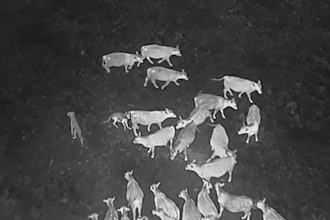
MEXICO CITY (AP) — Schools in Mexico have six months to implement a government-sponsored ban on junk food or face heavy fines, officials said Monday, as authorities confront what they call the worst childhood obesity problem in the world.
The rules, published on Sept. 30, target products that have become staples for two or three generations of Mexican school kids: sugary fruit drinks, chips, artificial pork rinds and soy-encased, salty peanuts with chili.
School administrators who violate the order will face fines equivalent to between $545 and $5,450, which could double for a second offense. That could amount to nearly a year’s wages for some.
Mexico's children have the highest consumption of junk food in Latin America and many get 40% of their total caloric intake from it, according to the U.N. children’s agency, which has called child obesity there an emergency.
Authorities say about one-third of Mexico's children are overweight or obese.
Previous attempts to implement laws against junk food have met with little success.
A survey of over 10,000 schools carried out between 2023 and 2024 found that junk food was available in 98% of them, with sugary drinks in 95% and soft drinks in 79%. Ads for junk food were found in 25% of schools.
New President Claudia Sheinbaum said Monday that schools will have to offer water fountains and alternative snacks, like bean tacos.
“It is much better to eat a bean taco than a bag of potato chips,” Sheinbaum said. “It is much better to drink hibiscus flower water than soda.”
However, the vast majority of Mexico's 255,000 schools do not have free drinking water available to students. According to a report in 2020, the effort to install drinking fountains succeeded in about 10,900 of the country’s schools, or about 4%. Many schools are in areas so poor or remote that they struggle to maintain acceptable bathrooms, internet connection or electricity.
Mexico instituted front-of-package warning labels for foods between 2010 and 2020 to advise consumers about high levels of salt, added sugar, excess calories and saturated fats. Some snack foods carry all four warning labels.
But under the new rules, schools will have to phase out any product containing even a single warning label from their snack stands.
It wasn't immediately clear how the government would enforce the ban on the sidewalks outside schools, where vendors usually set up tables of goods to sell to kids at recess; 77% of schools in the recent survey had such stands outside.






















